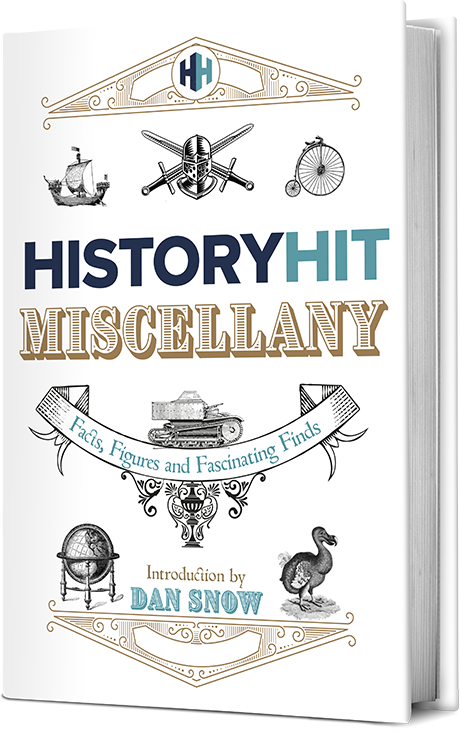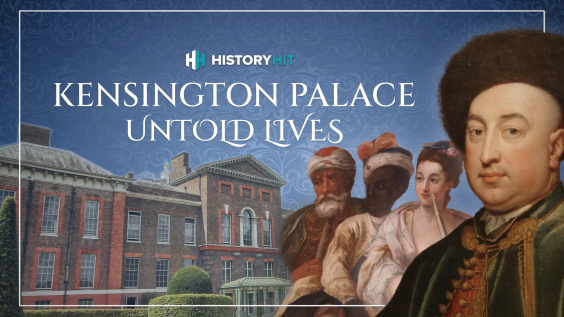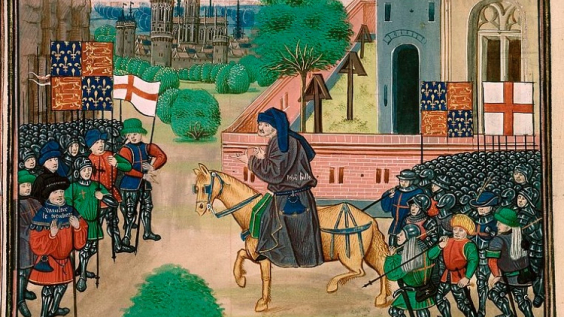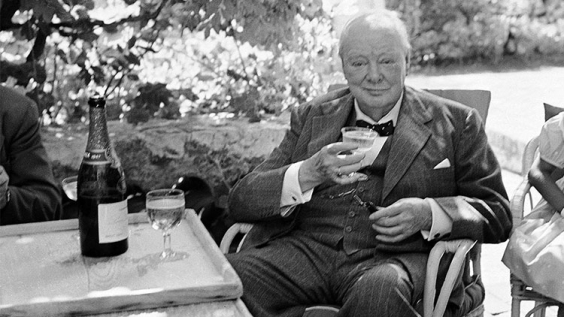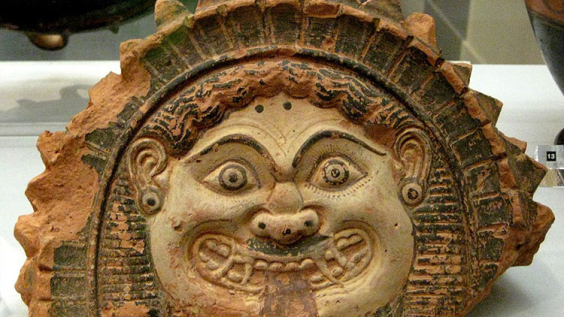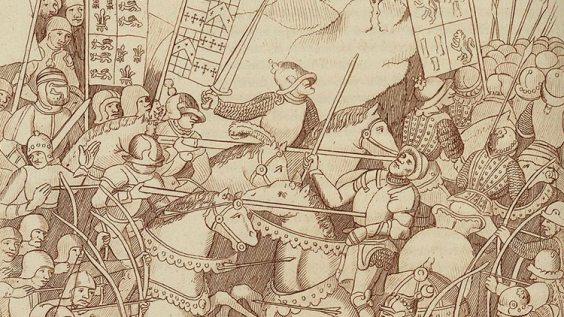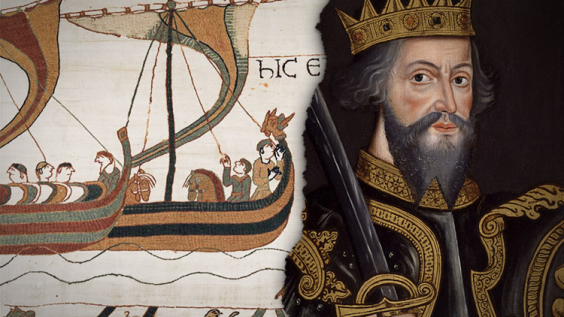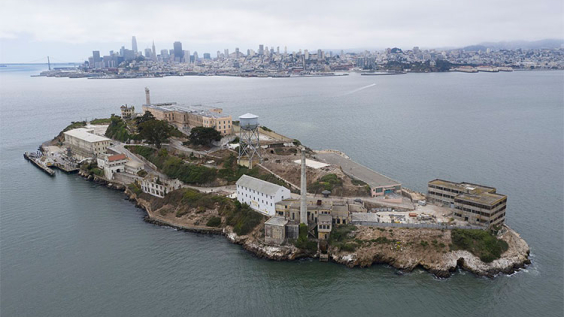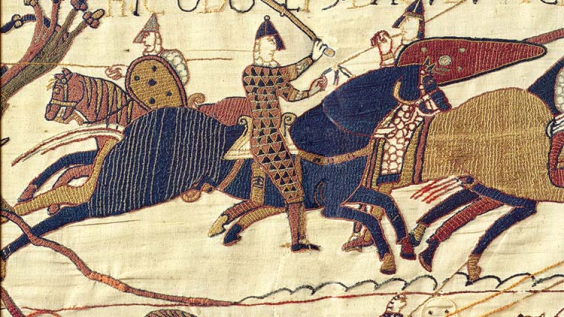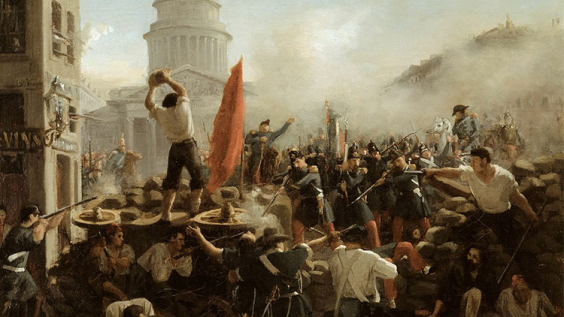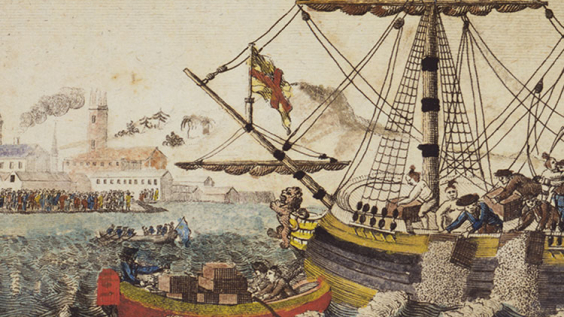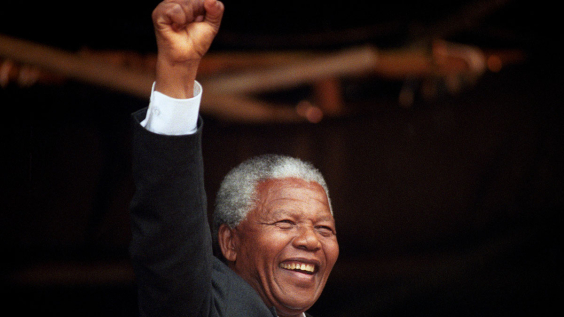
This article is an edited transcript of Appeasing Hitler with Tim Bouverie on Dan Snow’s History Hit, first broadcast 7 July 2019. You can listen to the full episode below or to the full podcast for free on Acast.
In March 1939 Hitler invaded the rest of Czechoslovakia, annexed it and rendered all of Chamberlain’s claims for peace with honour and peace for our time null and void.
Chamberlain initially didn’t even appreciate the magnitude of what had happened. He thought that Czechoslovakia had sort of fallen apart internally. There were lots of domestic rows going on between the different minorities in Czechoslovakia which had preceded the German invasion.

Ethnic Germans in Saaz, Sudetenland, greet German soldiers with the Nazi salute, 1938. Image Credit: Bundesarchiv / Commons.
Desperate scramble
The British were certainly not spoiling for a fight, but they were then carried along by a wave of panics.
The Romanian minister came and visited Chamberlain and said that the Germans were about to invade Romania. There were rumours that the Germans were about to invade Switzerland, that they were about to bomb London, that they might invade Poland, and there was a huge desperate scramble to, at the last moment, weld together an anti-Nazi alliance.
It was hoped that this would centre on the Soviet Union, but the Soviet Union wasn’t prepared to play ball, and Chamberlain and his colleagues had cold shouldered Stalin for most of the decade. And so they rested on Poland.
They wanted a two-front war. If they had to fight Germany, they wanted a two-front war from the beginning, and they thought that Poland was the most substantial military power in the East. So they guaranteed Poland, then they guaranteed Romania, they guaranteed Greece, there was an agreement with Turkey.
Suddenly there were deterrents and alliances going out left, right, and centre. But they were definitely not longing for war.
 Watch Now
Watch NowWhy did Hitler keep pushing?
Hitler kept pushing because he didn’t believe that the British and French would actually fight. One of the biggest problems with the Munich Agreement was he thought that they would continually give in.
It was not clear whether he would have curtailed his plans had he been convinced that the British and French would fight for Poland, but he was determined to see the Greater German Reich in his lifetime, and he didn’t think he was going to live much longer.
He also saw that the British and French were belatedly closing the arms gap which he had opened up. This was the moment.
So it was boldness on Hitler’s part, determination to see his program through, but also an unwillingness to believe the British and the French when they said that they were going to fight for Poland.
Ribbentrop’s role

Joachim von Ribbentrop.
Hitler was continually assured by his completely egregious Joachim von Ribbentrop, his foreign minister and one-time ambassador to London. Ribbentrop, the most bitter Anglophobe you could imagine, continually assured Hitler that Britain would not fight. He said that again and again and again.
There was a war party within the Nazi hierarchy and there was a peace party. Ribbentrop led the war party and the war party, which Hitler was obviously part of and the leading member of, won.
When Britain declared war and Britain’s ambassador Neville Henderson handed a note to the German Foreign Ministry, and then von Ribbentrop delivered this to Hitler, Hitler apparently, according to his interpreter, turned to von Ribbentrop and said, “What next?” in a very angry way.
Hitler was making it clear, so the interpreter thought, that he was surprised that the British had declared war and was angry with Ribbentrop.

